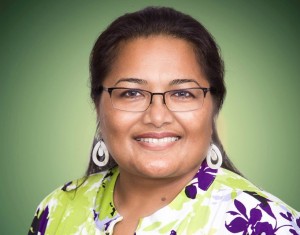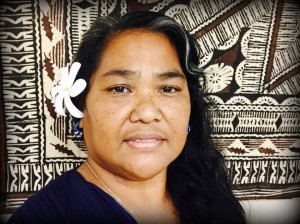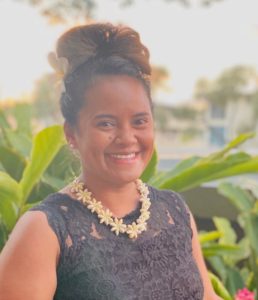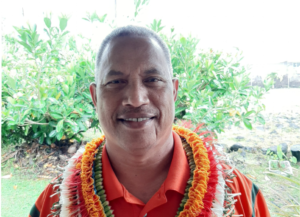Navigating Success: Case Studies and Strategies to Support Micronesian Youth Achieve Success
Do you work with Micronesian youth at your institution or organization? This panel of Micronesian community leaders, educators, equity advocates, researchers who will offer a nuanced perspective on the Micronesian experience in America. Through case studies and interactive discussions, attendees will gain valuable insights into the strategies and programs that are empowering Micronesian youth to achieve success.
Date: Thursday, May 30, 2024
Time: 1:00 – 2:15 pm
Room: Hawaii Convention Center, Room 303A+B
Sponsored by: Oceanic Caucus (OCNCORE)
Session Description
Micronesian youth in America face a unique set of challenges as they navigate education, career paths, indigenous cultural and linguistic identity. Since 1986 when the Compact of Free Association (COFA) treaty was signed between the US and the governments of the Pacific Island nations of the Federated States of Micronesia (FSM), Republic of the Marshall Islands (RMI) and the Republic of Palau (Palau), citizens of these US-affiliated island states in the Micronesian region have migrated to the United States as victims of colonialism, exiles of the US nuclear testing legacy, and refugees of global warming to seek better health care, education for their children, and job opportunities while facing discrimination and lack of resources. But rising out of the ocean of despair are waves of resilient and successful Micronesian advocacy efforts. This session will showcase the strategies of Micronesian role models and their organizations making a difference in the lives of COFA youth. The session aims to provide a counter-narrative of negative stereotypes of COFA immigrants in the US and offer strategies to support the continued success of Micronesian youth in the US.
Chair
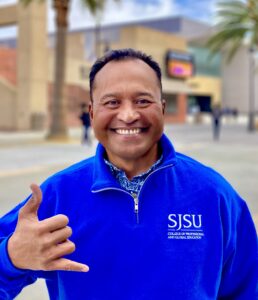
Vidalino Raatior, Ed.D
Dr. Vid Raatior is a Chuukese Micronesian international educator, social entrepreneur, community organizer, and an advocate for Pacific Islander empowerment in the United States. He is the founder of the Pacific Leadership Assistance Network (PLAN) and Pacific FocusEd and co-founded other initiatives aimed at advancing educational and social equity for the Pacific Islander diaspora in the United States particularly from the Micronesian region of the Federated States of Micronesia (FSM), Republic of the Marshall Islands (RMI), and the Republic of Palau (ROP). Currently, he works at the College of Professional & Global Education at San Jose State University (SJSU) as coordinator for study abroad & bilateral student exchange programs in Asia and Oceania and serves as faculty advisor for the Pacific Islander Student Association (PISA) at SJSU. Previously, he served as the Director of the Pacific Islander Student Center (PISC) and the AANAPISI Programs at the University of Hawaii at Hilo, . He also worked for 10 years at Santa Clara University in California as the Assistant Director of International Programs Office and as Associate Director of the Center for Multicultural Learning. Vid has also served as Assistant Director and classroom teacher at Xavier High School in Chuuk, FSM.
Panel
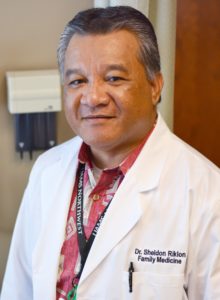 Sheldon Riklon, MD, FAAFP
Sheldon Riklon, MD, FAAFP
Dr. Sheldon Riklon is currently an Associate Professor in the Department of Family and Preventive Medicine and a co-investigator in the Institute for Community Health Innovation and Research at the University of Arkansas for Medical Sciences’ Northwest Campus. He is the inaugural recipient of the Peter O. Kohler, M.D., Endowed Chair in Health Disparities at UAMS-NW Campus and the 2021 recipient of the Dr. Edith Irby Jones Excellence in Diversity and Inclusion Lifetime Achievement Award. Originally from the Marshall Islands, Dr. Riklon serves as a primary care physician at Community Clinic in Springdale that serves a large patient population of Marshallese and underserved populations in NW Arkansas. His research surrounds culturally competent health research, health care services, and palliative care for indigenous Pacific Islanders. Dr. Riklon has also worked toward creating health equity for Pacific Islanders living in the US. He earned his MD from the University of Hawaii at Manoa’s John A. Burns School of Medicine (JABSOM).
 Jocelyn Howard, MSW
Jocelyn Howard, MSW
Josie Howard is the CEO of the Hawaii-based non-profit organization, We Are Oceania (WAO), aimed at supporting the success of the “Micronesian community to navigate success while honoring the integrity of our diverse heritage.” Originally from Onoun Island in Chuuk State, Federated States of Micronesia, Josie graduated from Xavier High School in Micronesia and earned a bachelor’s degree from University of Hawai‘i at Hilo studying Biology, Anthropology, and Pacific Island Studies and her Master in Social Work from University of Hawaii at Manoa. Josie has over 15 years of servicing the community, with 8 years in the Department of Health Waiver program, 5 years in the Department of Education, and 5 years in program development, implementation, and piloting a one stop center model. Josie’s community involvement includes being the founder of the Young Voyagers, a youth club in Media with ‘Ōlelo, and co-founder of the Micronesian Health Advisory Council, and Micronesian Cultural Awareness Project. As the founding CEO of WAO, Josie has led the organization’s successful Micronesian Youth Summit and other support services.
 Innocenta Sound-Kikku
Innocenta Sound-Kikku
Inno is a community leader in Hawai’i originally from the beautiful island of Lukunor in Chuuk State, Federated States of Micronesia. With 10 years of law enforcement experience in the Northern Mariana Islands before moving to Hawaii, Mama Inno as she is affectionately known is an active advocate, storyteller, interpreter, teacher, “aunty” and cultural navigator who has a particular passion for women and children. She is the founder of the Pacific Voices Center, a cultural safe space after school program at Kokua Kalihi Valley (KKV) Youth Services and founded the NieiRek Micronesian women empowerment program, and serves as Vice-Chair of the Micronesian Health Advisory Committee. In all of her work Mama Inno plays a key role in connecting her community to resources and cultural supports and advocating for their rights to health and culture.
 Shanty Sigrah Asher, JD
Shanty Sigrah Asher, JD
Shanty Sigrah Asher is the Pacific Islander Liaison Officer at the Office of Economic Revitalization for the City and County of Honolulu and a member of the Hawaii State Board of Education. She also serves as a consultant at the Pacific Resources for Education & Learning (PREL) in Hawaii. Previously, Shanty served as Deputy Assistant Secretary for Pacific Affairs at the Department of Foreign Affairs for the Federated States of Micronesia (FSM). She is an alumnae of the Executive Leadership Development Program (ELDP) and Asia Pacific Security Studies (APCSS). Shanty is a graduate of Malem Elementary School and Kosrae High School and earned both her Bachelor of Science in Pre-Law and a Master of Science in Criminal Justice Administration at Chaminade University of Honolulu and her Juris Doctor (JD) law degree from the Thomas Jefferson School of Law in San Diego. Shanty’s leadership roles have included serving as a board member for The Legal Clinic, president of the Kosrae Women Association, president of the Asia Pacific American Law Student Association at her law school, and a board member of the National Asia Pacific Islander Prosecutors Association.
 (CMS Ret.) Thomas Raffipiy
(CMS Ret.) Thomas Raffipiy
Thomas Raffipiy is the CEO of Scorpius Pacific LLC, who has extensive leadership experience through his 32 years in the US military, his entrepreneurial experience as General Manager of TNT Electric on Hawaii Island, and other philanthropic and civic engagement both in the State of Hawaii and throughout the Pacific. Tom grew up on Satawal Island, Yap State in the Federated States of Micronesia, under the care of his renowned traditional master navigator Papa Mau Piailug. As a Board member of the Hilo-based Micronesians United – Big Island (MU-BI) and leader of the Remathau Community, Tom continues to serve as a cultural bridge between the Micronesian community and Polynesian Voyaging Society and the Na Kalai Wa’a of Hawaii to keep Papa Mau’s legacy at the forefront of race and ethnicity dialogue in Hawaii. His organization, MU-BI has been actively supporting Pacific Islander youth on Hawaii through their Pacific Youth Empowerment for Success (PacYES) conference.


